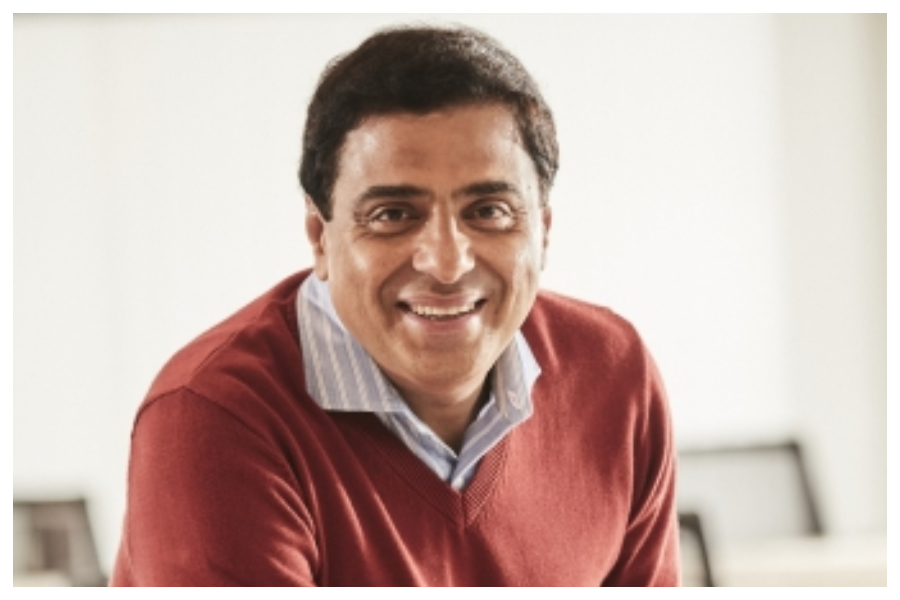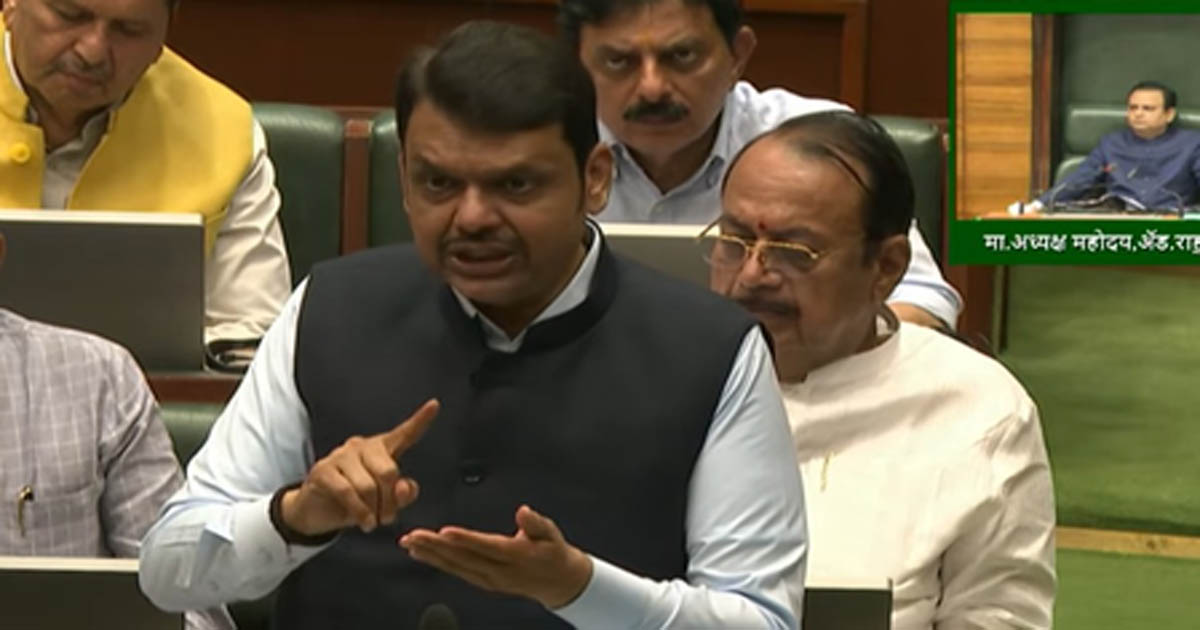Business
Ronnie Screwvala: No funding winter for startups with real business models

There is no funding winter for startups and unicorns with great and real business models and for those building organisations to outlast all others, according to Ronnie Screwvala, Co-Founder and Chairperson of higher education platform upGrad.
In an interaction with Screwvala said that even today, there are investments being closed daily across multiple sectors, as the world faces a great deal of uncertainty over multiple macro-economic factors.
Here are the excerpts from the interview:
Q: How do you look at the current wave of ‘funding winter’ in India?
A: I am always amused to hear this phrase ‘funding winter’, heard it so often in the last 15 years. I always thought only God was responsible for the multiple seasons we enjoy each year but of late, the private equity (PE) investor community is taking that place with their own patent on seasons.
Summer is when you bask in your own self-made glory, excesses and intoxication of hyper valuations, where no one is accountable and everyone is told to make hay while the sun shines.
Monsoon (unique to India) is a realisation that when ‘it rains it pours’ — good or bad.
Then, of course, is Winter, the time to re-write the same 50-page presentation that in summer months said exactly the opposite — the time to reverse the same intoxication of fund raise, valuations and hyper so-called growth with ‘one time’ write downs and blame the whole world, war, inflation and more, that was lurking around the whole summer but no one wanted to put their glasses on.
Seriously though, there is no funding winter for companies with great and real business models and for those building organisations to outlast all others. Even today there are investments being closed daily across multiple sectors — maybe not with the maverick investors who may be.
Let’s face it, the markets have corrected 10-12 per cent, that’s it. Overall, it is still way higher than pre-Covid and if you look, many companies are at their all-time high. This is also the best time for real businesses and mature founders not inflated with valuations to go out there.
Every company worth its value has to go through multiple seasons, over and over again, and the right ones grow and mature from that.
Also in Winter, the most elegant of snow leopards come out to hunt and be predators, and so Winter is the time for those who want to build to outlast and who want to be predators.
Q: The edtech sector is witnessing layoffs. Is this because funding dried up or there is more to it?
A: There is absolutely no ‘dry spell’. Just because a few handful of start-ups got crazily funded, made them lose all focus, pushed to grow and diversify are now being forced by those same investors to wake up and smell the coffee, does not mean there is any dry spell.
They were misguided by themselves and their Board and now are correcting themselves, unfortunately at the cost of valued working colleagues, but they are the exception, not the trend at all.
Never in a 100 years of education and ‘LifeLongLearning’ has there been a more opportune time to disrupt scale and include millions of college learners and working professionals to re-invent, re-skill and get onto a new growth path in their careers. India is also placed brilliantly to open up the higher education market in Asia and around the world.
We, at upGrad, have stayed away from the hubris of distraction and focused on outcomes and impacting careers.
Let there be no mistake, there is no better time than now. K12 went through its Covid bump and it is now seeing much needed correction, but the majority of companies in edtech are just getting started.
Q: How do you look at the global macroeconomic conditions that have engulfed economies the world over?
There were some interesting themes across the three days at the World Economic Forum (WEF) at Davos. Here are some takeaways:
A) Those who were questioning the end of globalisation had not really spent enough time defining what that meant in the first place, before sounding the death knell on it. Globalisation is here to stay as the world consumer wants it that way. An 18-year-old Zayda in Bangladesh wants to own an Apple iPhone and the 22-year-old Amari in Zambia wants to graduate from a UK university.
While the world leaders have in their own way created barriers, through war or threats of war and more insular growth, the seven billion+ people on this planet will not let that happen and globalisation will prevail.
B) There is a reskilling revolution that is happening and will be a tsunami over the next decade across the world. Better education and lifelong learning — accessible and affordable to all — digitally can and will add a massive $8 trillion to the global GDP in this decade. Power shifts in countries will take place based on the workforce and their population being ready for the jobs of tomorrow and also be the learning capitals of the world.
C) India also has the place and the position to be the new voice of global leadership — largest democracy, fastest growing economy and a world leader with clarity, conviction and an agenda to put it at the centre-stage in the world.
D) There is no doubt that the world is going to pass through a very, very challenging time. With food being disproportionately available to countries around the world, the poor will get poorer even if the rich do not get richer. Covid is not leaving the planet in a hurry but has got us all hyper alert on health enough to take notice of even Monkeypox – something that was prevalent in Africa for years but ever since it hit the “western” world.
And the war is not going away in a hurry and it will be interesting to see how engaged the West stays as the war prolongs or will they lose interest if it does not serve their agendas.
The big question we also need to track is how polarised the world will get in the next two-three years. All of this will call for incredible world leaders and leadership in politics and in building business and organisations.
Business
Maha govt presents supplementary demands worth Rs 11,995 crore in Assembly

Mumbai, Feb 24: Amid strain on state finances, Maharashtra Chief Minister Devendra Fadnavis, who holds the charge of planning and finance departments, on Tuesday tabled the supplementary demands worth Rs 11,995 crore for the remaining period of the fiscal 2025-26.
Of the Rs 11,995 crore, the state government has earmarked Rs 3,112.85 crore to meet the expenses incurred on the concession given in the electricity tariff to Agriculture pump, power loom and textile consumers in the state, and Rs 803.94 crore has been proposed as incentives to small, medium, large industries and mega projects under the package scheme of incentives.
The government has proposed Rs 4,792.02 crore for transferring the loan amount to the state power distribution company, Mahavitaran, which has been received from the Asian Infrastructure Investment Bank for the solar agriculture pump scheme. This allocation is aimed at pushing the government’s plan to use 52 per cent renewable energy by 2030 under the net zero mission.
The government has also proposed Rs 1,431.05 crore as an additional fund as part of the Central share for the implementation of the Jal Jeevan mission. In March 2025, Ajit Pawar had presented the budget with a revenue deficit of Rs 45,890 crore.
In June 2025, the government presented the supplementary demands worth Rs 57,509.71 crore, crossing the revenue deficit of Rs one lakh crore.
In the Winter Session during December 2025, with supplementary demands of Rs 75,286.37 crore, the revenue deficit had already touched the Rs two lakh crore mark. In addition to the revenue deficit of Rs 45,891 crore, the budget 2025-26 had projected that Maharashtra’s debt burden is set to rise to Rs 9.32 lakh crore. In Tuesday’s supplementary demands, the state government has not only refrained from proposing any new and additional expenses but has focused solely on Power subsidies for farmers and Industry incentives.
CM Fadnavis will present the state budget for the year 2026-27 on March 6. He has already announced in the press conference on Sunday that there could be strict measures to maintain financial discipline.
Earlier, speaking at the World Economic Forum (WEF) annual meeting, the Chief Minister had said that the state is on track to generate 16 gigawatts (GW) of solar power by the end of this year. By 2032, the state aims to generate an additional 45 GW, with 70 per cent coming from solar. Renewable energy, which stood at 13 per cent four years ago, is projected to reach 52 per cent by 2030,” he said.
Following Prime Minister Narendra Modi’s vision, the state launched Asia’s largest decentralised solar scheme.
By shifting the entire agricultural load to solar power and establishing a dedicated company for farmer supply, the state is making every agricultural feeder independent.
“The cost of supplying power to farmers has dropped from Rs 8 to less than Rs 3 per unit. This transition is not only helping farmers but also reducing the financial burden on industries and households,” the Chief Minister noted.
The government is advancing a capital outlay for pumped storage hydro projects (combined capacity of 5,630 MW) with an estimated total investment of Rs 24,631 crore.
Business
Precious metals surge over growing geopolitical tensions

Mumbai, Feb 23: Gold and silver prices surged significantly on Monday, amid growing geopolitical tensions and the US dollar’s steep fall.
MCX gold April futures gained 1.83 per cent to Rs 1,59,749 per 10 grams on an intra-day basis. Meanwhile, MCX silver March futures gained 5.10 per cent to Rs 2,65,836 per kg.
Earlier in the day, gold had jumped 2 per cent while silver soared 6 per cent. Analysts attributed the surge to geopolitical tensions as US President Donald Trump’s 10-day deadline for a “meaningful deal” with Iran drew closer.
Iran has indicated it is prepared to make concessions on its nuclear programme in talks with the US in return for the lifting of sanctions and recognition of its right to enrich uranium, as it seeks to avert a US attack.
Further, the dollar fell after the US Supreme Court struck down a vast swathe of President Trump’s tariffs on Friday.
“The US Supreme Court’s decision to strike down a large swath of Trump’s tariffs has weakened his ability to threaten and impose tariffs at a moment’s notice, but it won’t end gnawing uncertainty for trade partners or companies,” said Manav Modi, Commodities Analyst, Motilal Oswal Financial services Ltd.
“Silver is witnessing a large draw of inventories from all warehouses especially, Comex very significantly indicating the tightness in supply and surge in demand as China remains shut,” the analyst said.
Concerns over slowing US economic growth are also supporting gold’s safe-haven appeal. The US GDP rose 1.4 per cent annually in the fourth quarter, down from 4.4 per cent in the July-September quarter and 3.8 per cent in the April-June quarter.
“Gold has support at Rs 1,54,400 and Rs 1,53,150 while resistance at Rs 1,59,100 and Rs 1,60,600. MCX silver has support at Rs 2,48,800 and Rs 2,42,000, and resistance is at Rs 2,57,700 and Rs 2,63,620,” an analyst said.
Markets remain keen on data from US factory orders, cues on consumer confidence data, and US Producer Price Index (PPI) data.
Business
RCOM loan fraud: Anil Ambani files affidavit in SC; reiterates not to leave country

New Delhi, Feb 19: Industrialist Anil D. Ambani has filed an undertaking/compliance affidavit before the Supreme Court reiterating that he will not leave the country without prior permission of the apex court in connection with the ongoing probe into alleged large-scale bank loan frauds linked to Reliance Communications Ltd (RCOM) and its group entities.
The affidavit has been filed in a pending public interest litigation (PIL) seeking a court-monitored probe into the allegations that more than Rs 1.50 lakh crore of debt of the Ambani-led RCOM group has been written off and that funds were siphoned off through multiple shell companies.
The affidavit formally reiterates the oral undertaking recorded before the apex court on February 4, when senior advocate Mukul Rohatgi, appearing on his behalf, assured that Ambani would not leave India without prior permission of the top court.
“By way of the present affidavit, I formally reiterate and place on record the said statement by virtue of the present affidavit as an undertaking before this Hon’ble Court,” Ambani stated.
He further deposed on oath: “That I have not left India since July 2025, i.e., since the inception of the present investigations, and presently have no plan or intention to travel outside India.”
He added that if any requirement of foreign travel arises, he would seek prior leave and permission of the Supreme Court before undertaking such travel.
Asserting that he is not a flight risk, the affidavit states: “In view of the above conduct, undertakings, and continued cooperation, it is evident that I am not a flight risk and have no intention, whatsoever, to evade the process of law.”
Ambani also stated that he has been fully cooperating with the investigating agencies. “That I, with utmost bona fide, have been fully cooperating with the investigating agencies in connection with the ongoing investigations and continue to extend complete cooperation,” the affidavit reads.
Referring to the ongoing probe under the Prevention of Money Laundering Act, 2002, he stated that examination under Section 50 of the PMLA is presently being conducted during the pendency of proceedings before the apex court.
“That I have been summoned by the Directorate of Enforcement to appear on 26.02.2025 and I undertake to appear and join the investigation on the said date,” the affidavit said, while also undertaking to fully cooperate with the authorities and “preventing any suggestion of evasion or selective presentation of facts.”
Clarifying his role in the group companies under scrutiny, Ambani submitted: “That I respectfully state that my role in the concerned companies had been that of a Non-Executive Director only, and I was not involved in the day-to-day management or operational affairs of the said companies.”
In the affidavit sworn on February 18, he stated: “That the present affidavit is being filed to ensure clarity, completeness, and procedural transparency in the judicial record with an intent that this Hon’ble Court remains seized of the broader issues arising from the same factual matrix.”
Ambani’s undertaking comes against the backdrop of the Supreme Court’s February 4 order, where a Bench headed by Chief Justice of India (CJI) Surya Kant had expressed serious concern over an “unexplained delay” by the Enforcement Directorate (ED) and the Central Bureau of Investigation (CBI) in probing alleged bank loan frauds involving public funds estimated at around Rs 40,000 crore.
The CJI Kant-led Bench had directed the ED to constitute a Special Investigation Team (SIT) of senior officers and asked both Central agencies to take the investigation to its “logical conclusion” in a time-bound manner, while making it clear that no coercive or harsh orders were being passed at that stage.
During the hearing, apprehensions were raised by advocate Prashant Bhushan that the key accused could flee the country before completion of the probe, following which an undertaking not to travel abroad without apex court permission was recorded.
The Supreme Court had also directed the ED and the CBI to file detailed status reports on the progress of their investigations and questioned why only a single FIR had been registered despite complaints from multiple lenders, observing that each complaint constitutes a separate transaction warranting independent examination.
-

 Crime4 years ago
Crime4 years agoClass 10 student jumps to death in Jaipur
-

 Maharashtra1 year ago
Maharashtra1 year agoMumbai Local Train Update: Central Railway’s New Timetable Comes Into Effect; Check Full List Of Revised Timings & Stations
-

 Maharashtra1 year ago
Maharashtra1 year agoMumbai To Go Toll-Free Tonight! Maharashtra Govt Announces Complete Toll Waiver For Light Motor Vehicles At All 5 Entry Points Of City
-

 Maharashtra1 year ago
Maharashtra1 year agoFalse photo of Imtiaz Jaleel’s rally, exposing the fooling conspiracy
-

 National News1 year ago
National News1 year agoMinistry of Railways rolls out Special Drive 4.0 with focus on digitisation, cleanliness, inclusiveness and grievance redressal
-

 Maharashtra1 year ago
Maharashtra1 year agoMaharashtra Elections 2024: Mumbai Metro & BEST Services Extended Till Midnight On Voting Day
-

 National News1 year ago
National News1 year agoJ&K: 4 Jawans Killed, 28 Injured After Bus Carrying BSF Personnel For Poll Duty Falls Into Gorge In Budgam; Terrifying Visuals Surface
-

 Crime1 year ago
Crime1 year agoBaba Siddique Murder: Mumbai Police Unable To Get Lawrence Bishnoi Custody Due To Home Ministry Order, Says Report












